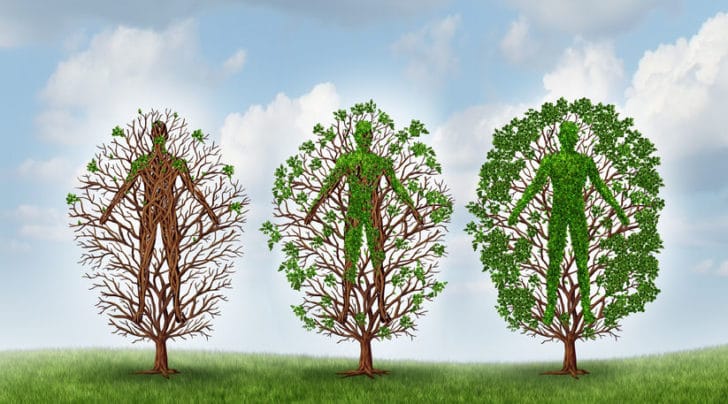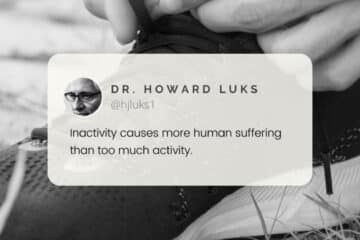
In the fitness world, the spotlight often shines on pushing harder, lifting heavier, and doing more. Yet, the often-overlooked hero of long-term health and performance is recovery. It’s not just about taking a day off—it’s a crucial process that allows your body to adapt, repair, and grow stronger.
Why Recovery Matters
When you exercise, you’re creating stress on your muscles, tendons, and cardiovascular system. Recovery is when the magic happens: your body repairs damaged tissues, restoring energy reserves and reducing inflammation.
Without adequate recovery, you risk overtraining, injury, and even a decline in performance. Worse, chronic under-recovery can accelerate aging and increase your risk of long-term health issues.
The Misconceptions About Rest
Many believe that taking time to rest or scale back is a sign of weakness. This couldn’t be further from the truth. Recovery isn’t about slacking—it’s about strategy. Whether you’re training for a marathon or simply trying to stay active, respecting your recovery makes consistency possible over the long term.
Signs You’re Not Recovering Enough
How do you know if your body needs more recovery? Look for these signs:
Persistent fatigue or irritability.
Poor sleep or trouble falling asleep.
Decreased performance despite hard training.
Suppressed (low) heart rate despite a good effort (many mistake this as a sign of fitness).
Frequent soreness or minor injuries.
Ignoring these signals increases the risk of burnout and injury, derailing months—or even years—of progress.
How to Recover Smarter
Recovery doesn’t mean doing nothing. Instead, it’s about giving your body what it needs to bounce back stronger.
Here are some strategies:
Active recovery: Incorporate light aerobic activities like walking or cycling to improve circulation and reduce stiffness.
Prioritize sleep: Sleep is the ultimate recovery tool, allowing your body to repair and recharge.
Nutrition and hydration: Fuel your body with protein, healthy fats, and carbs to replenish energy and support muscle repair.
Stress management: High stress can hinder recovery, so mindfulness or relaxation techniques can make a difference.
Recovery and Longevity
Ultimately, recovery is the foundation of sustainability. Fitness isn’t just about this week or this season—it’s about the decades ahead. Training for life, not just for events, means listening to your body, respecting its limits, and allowing time to rebuild. As I always say, “Don’t let today’s workout ruin tomorrow’s.”
So, here’s my challenge for you: Are you giving your body the recovery it deserves? Share your approach to recovery in the comments—I’d love to hear how you prioritize rest in your fitness journey.
Your future self will thank you.
Do you have questions regarding an Orthopedic injury or longevity?
Do you want to talk to an expert who can listen to you for 45-60 minutes and explain the options in detail?
Dr. Howard Luks offers remote guidance sessions to review your X-ray or MRI images and explain your options.
Dr. Luks has also received hundreds of requests for educational sessions on the topics discussed in his book, Longevity Simplified.










angela davies
“Don’t let’s today’s workout ruin tomorrow’s”, excellent quote I now will daily reflect on after my daily exercise. This morning I slept an extra 90min, & some days I listen to my body after I have done adequate exercise and been standing on my feet at work (supermarket)…so I sit for 90 min having a long slow lunch while reading. I am curious to get into yoga Hatha; YT Dr.Tracey Marks The Surprising Science Behind Yoga and Tai Chi Benefits. (Unlock Your Nervous System). Also 2 cups of jasmine green tea helps mentally and physically.
peter harrington
Thanks Dr. Luks. I always enjoy your articles. I didn’t understand the following:
“Suppressed (low) heart rate despite a good effort (many mistake this as a sign of fitness”
Maybe you could elaborate in a future article.
Sorry for the confusion. Let’s say that you are running a course you know well. You know that your heart rate at your current pace is usually 135-140. You check your watch and your HR is only 125-130. Many people might think that that means that they have become more fit. But, a rapid drop in HR like that can be a sign of overtraining. If that drop in HR occurred slowly over many months, then it can be attributed to fitness/training.
Simon Mudie
Thank you Howard. We are bombarded with information about what we ‘must do’ from the outside, but also from our own self talk when it comes to our own well meaning and sometimes not sustainable activities. Our zeal to always go the extra mile, can also be our downfall, so your reminder of the importance of ‘must not do’ is a timely reminder that our bodies need time to catch up with our spirits, physically and mentally. We’re in it for the long haul, not just for an event in a few weeks time, or to look good on the beach during our next holiday.
Jacqueline Gillen
As always, I appreciate your thoughtful insights on health, exercise and longevity. If you can, sometime in the future, would you please comment on using a rebounder and vibration plates on overall fitness and especially bone health. Thanks.
Nick
I’m a 64yo cyclist who also lifts, wondering what you prefer, two days in a row of rest (Sun/Mon) or 2 days rest but not in a row (Mon/Fri). Does it matter in your opinion?
Hi Nick… I only plan one day of rest. If I need another one, my body, as well as my resting HR and HRV will tell me.